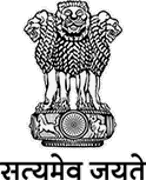About | Ministry of Education (MoE) , All INDIA Check here latest notification
Ministry of Education: Shaping the Future of India's Education System
Introduction
The Ministry of Education (MoE) in India plays a pivotal role in shaping the education system of the country. Tasked with formulating policies, administering and coordinating programs, and ensuring quality education, the MoE aims to foster a learning environment that promotes innovation, creativity, and holistic development. This blog delves into the structure, functions, and key initiatives of the Ministry of Education, highlighting its impact on the nation's educational landscape.
Historical Background
The Ministry of Education has undergone several transformations since India's independence. Initially known as the Ministry of Human Resource Development (MHRD), it was renamed the Ministry of Education in 2020 to emphasize its core focus on education. This change aligns with the National Education Policy (NEP) 2020, which aims to overhaul the Indian education system to meet global standards.
Structure and Organization
The Ministry of Education is divided into two main departments:
1. Department of School Education and Literacy: This department focuses on elementary, secondary, and higher secondary education. Its primary objectives include universalizing education, reducing dropout rates, improving the quality of education, and ensuring equitable access for all children.
2. Department of Higher Education: This department is responsible for tertiary education, including universities, colleges, and technical institutions. It aims to enhance access to higher education, promote research and innovation, and ensure that higher education institutions meet global standards.
Key Functions
The Ministry of Education is responsible for:
- Policy Formulation: Developing and implementing policies that guide the education sector, such as the National Education Policy (NEP) 2020.
- Regulation and Standards: Setting and maintaining educational standards to ensure quality education across the country.
- Funding and Grants: Allocating funds to various educational programs and institutions to support infrastructure development, scholarships, and research initiatives.
- Program Implementation: Executing national programs and schemes aimed at improving literacy rates, enhancing teacher training, and providing educational resources.
- Research and Development: Promoting research in education to develop innovative teaching methods, curricula, and assessment techniques.
Major Initiatives and Programs
1. National Education Policy (NEP) 2020: The NEP 2020 is a comprehensive framework aimed at transforming the Indian education system. Key highlights include the introduction of a 5+3+3+4 curricular structure, emphasis on early childhood care and education, vocational training, and multidisciplinary learning in higher education.
2. Samagra Shiksha Abhiyan: An integrated scheme for school education extending from pre-school to class 12. It aims to ensure inclusive and equitable quality education and promote lifelong learning opportunities for all.
3. Rashtriya Uchchatar Shiksha Abhiyan (RUSA): Aimed at improving the quality of state institutions in higher education, RUSA provides strategic funding to enhance infrastructure, faculty, and academic programs.
4. Mid-Day Meal Scheme: This initiative provides nutritious meals to school children, aiming to enhance enrollment, retention, and attendance while improving nutritional levels among children.
5. National Digital Library of India (NDLI): A project to develop a digital repository of educational resources available to students, teachers, and researchers. It aims to provide access to a wide range of learning materials in multiple languages.
6. SWAYAM: An online education platform offering courses from school to post-graduate level. It aims to bridge the digital divide and provide quality education to all, irrespective of geographical constraints.
Impact on Education
The initiatives and policies implemented by the Ministry of Education have significantly impacted the Indian education system:
- Increased Enrollment: Programs like the Mid-Day Meal Scheme and Samagra Shiksha Abhiyan have led to higher enrollment rates and reduced dropout rates in schools.
- Improved Quality: The focus on teacher training, curriculum development, and infrastructure improvements has enhanced the overall quality of education.
- Access to Higher Education: Initiatives like RUSA and the expansion of digital learning platforms have increased access to higher education, particularly in remote and underserved areas.
- Innovative Learning: Emphasis on research, vocational training, and digital resources has promoted a more holistic and innovative approach to learning.
Future Prospects
The Ministry of Education continues to evolve to meet the changing needs of society and the global education landscape. Future plans include:
- Implementation of NEP 2020: Full implementation of NEP 2020's recommendations to create a more flexible, multidisciplinary, and holistic education system.
- Digital Transformation: Expanding digital infrastructure and resources to ensure equitable access to quality education for all students.
- Global Collaboration: Strengthening partnerships with international educational institutions and organizations to enhance research, innovation, and academic exchange.
Conclusion
The Ministry of Education in India plays a crucial role in shaping the future of the nation's education system. Through its comprehensive policies, programs, and initiatives, the MoE strives to provide quality education that is accessible, inclusive, and relevant to the needs of the 21st century. As it continues to implement reforms and innovate, the Ministry of Education remains committed to building a brighter and more educated future for India.

